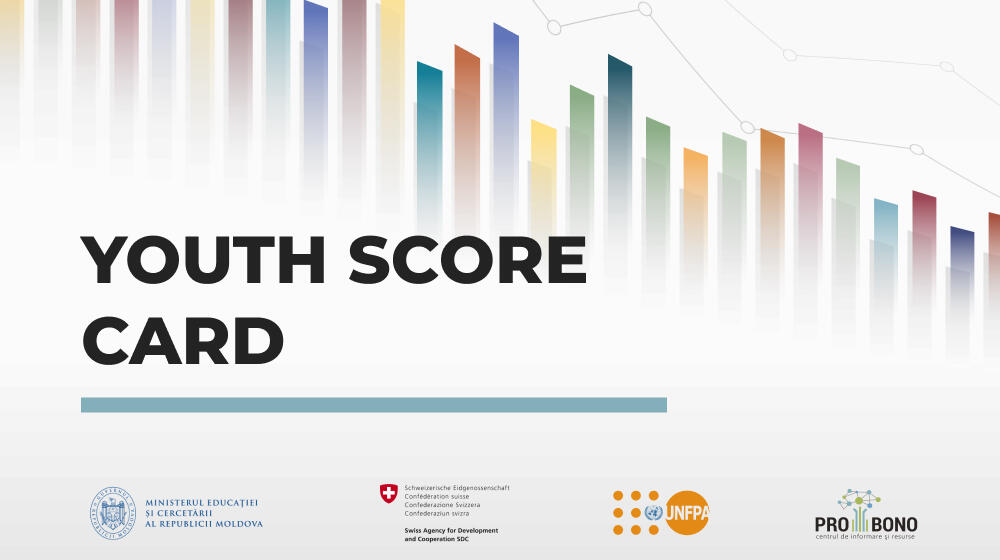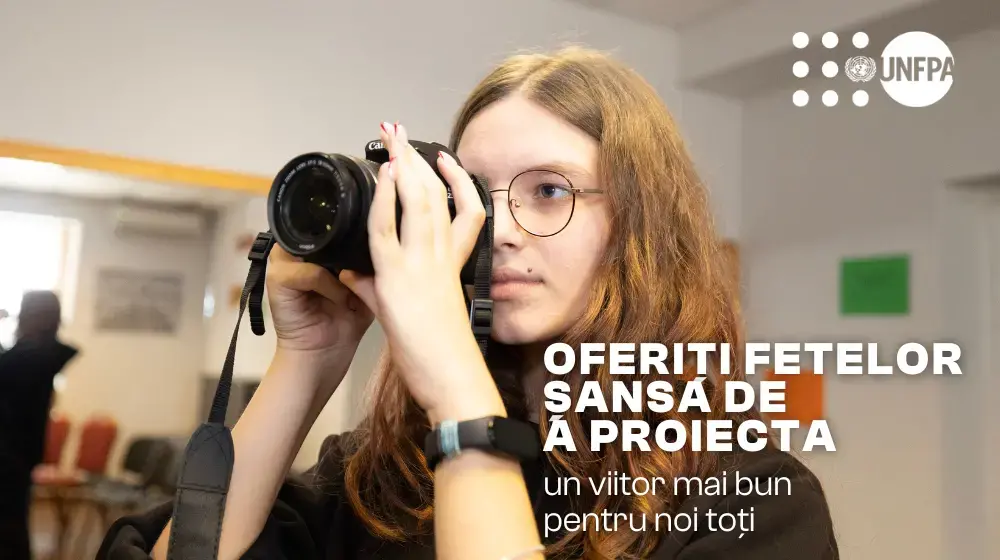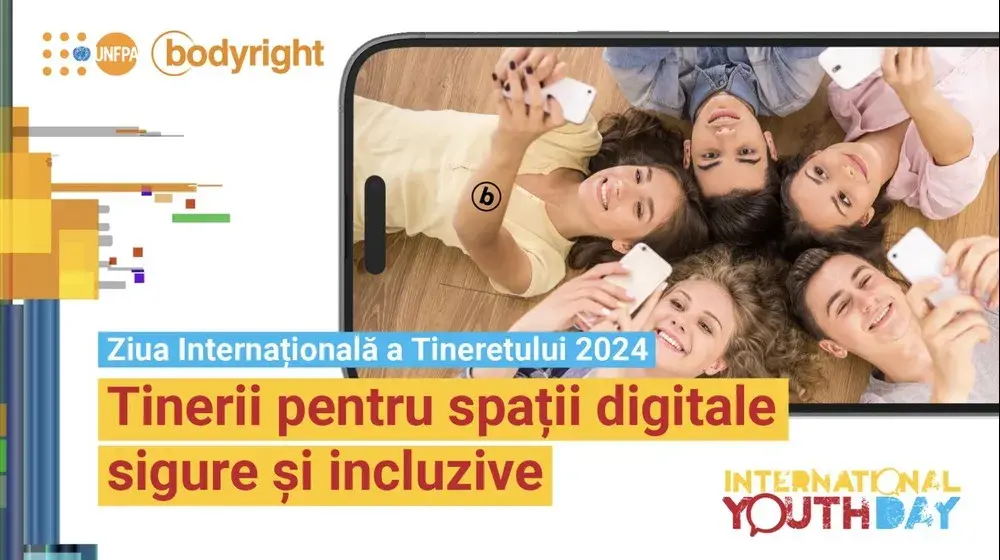The Youth Score Card is a statistical tool that estimates the situation of young people on a comparative, level II basis to facilitate the process of developing public policies based on the needs of young people and their monitoring. This instrument is a useful tool for local and central public authorities, organisations and structures working directly with and for young people.
The presentation of the 2022 edition of the Youth Score Card took place at an event attended by key stakeholders involved in working with young people at local and central level. In addition to learning about the results of this tool, the participants discussed how the data can be used in their activities and programs.
‘Data is very important for local and central authorities. They form the basis for creating documents, policies, plans or budgets. On the one hand, the Local Public Authorities know what data, collected through various tools, exist at local level and are communicated centrally. Based on the results, the LPAs will be able to carry out lobbying and advocacy activities and increase the number of activities or programs for young people where appropriate. On the other hand, this Score Card helps the Government to understand in which areas and regions to invest,’ says Ion Donea, Director of the National Agency for the Development of Youth Programs and Activities.
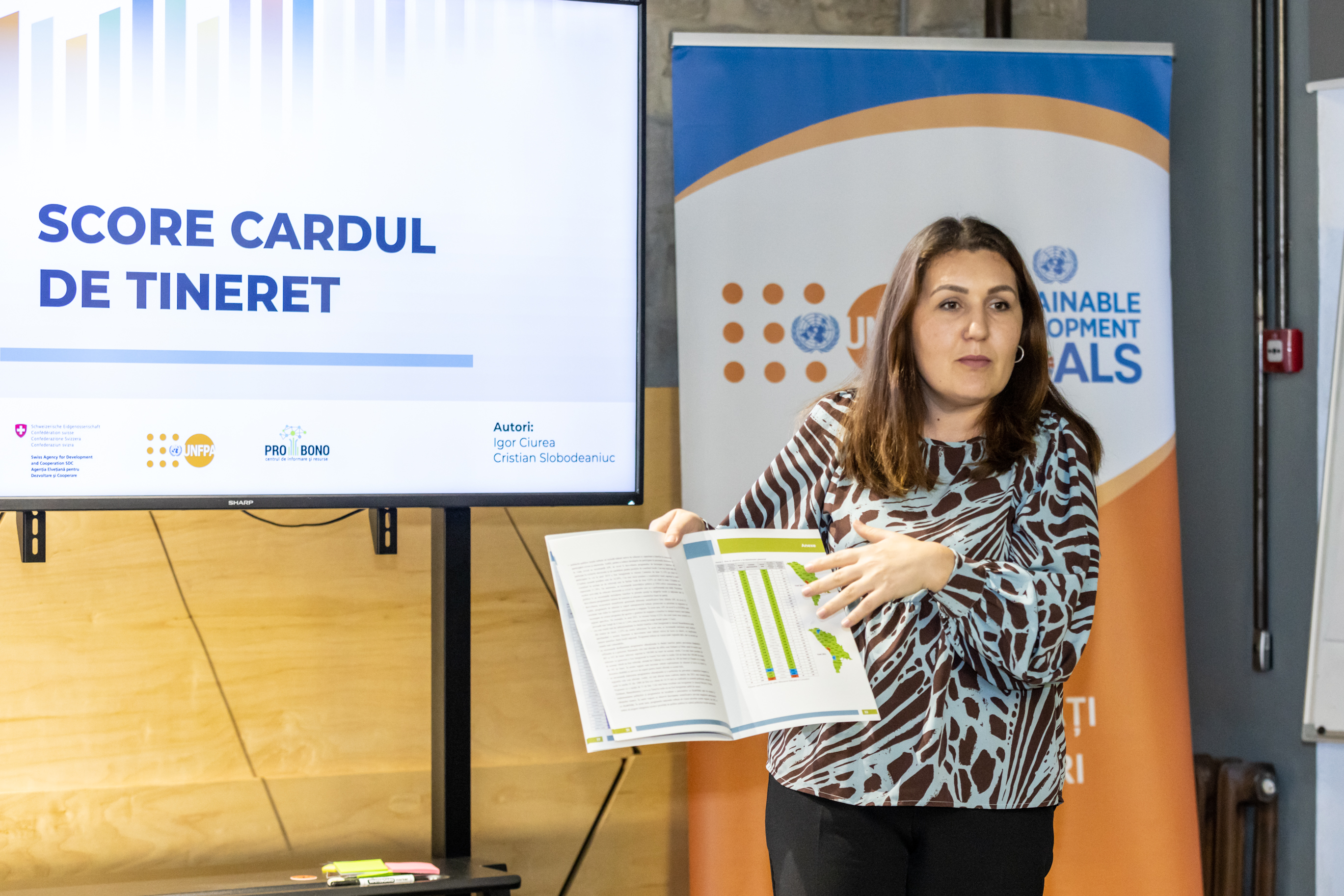
Moreover, the representatives of Local Public Authorities, the youth specialists from the 16 LPAs involved in the project, the managers of Youth Centres, youth workers, volunteers and young people discussed how to increase the quality and relevance of local youth policies by using quantitative and qualitative data.
‘For UNFPA, the Score Card is a valuable tool that can help us develop youth sector support programs based on local data and realities,’ said Ludmila Sirbu, Youth Program Analyst at UNFPA Moldova, at the opening of the event.

The study focuses on young people and the situation of young people in districts and municipalities and serves as a monitoring tool in several areas critical to their development. This tool helps decision-makers (authorities) develop youth policies that focus on the real needs of young people.
Victor Ursan, youth specialist, Ocnița District Council:‘In our region, the biggest problem at local level is employment. The indicators presented confirm this fact for several northern districts and I hope it is a clear signal for the national authorities.’
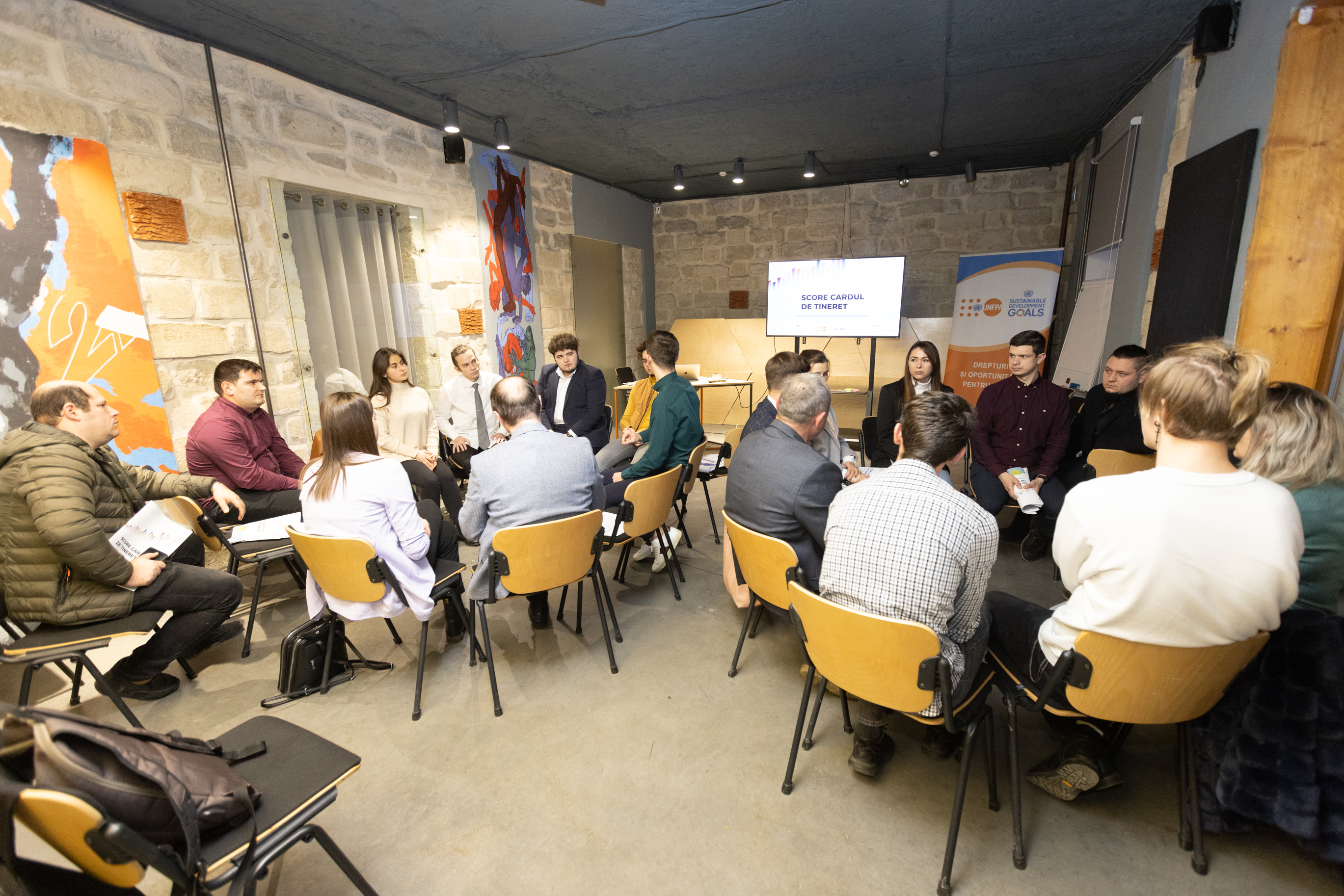
The Youth Score Card is developed by Pro Bono NGO under the auspices of the Ministry of Education and Research in partnership with the Swiss Cooperation Office, the United Nations Population Fund, in the framework of the Level II LPA Support Program on Capacity Building in Youth Budget Planning. This project has been running for 3 years and provides support in the development of the Youth Action Plan for the coming year, as well as mentoring in the implementation of the Youth Action Plan for the current year. 16 LPAs were involved in this Program, including local youth councils, youth centres, etc.
The document is available here. All data were collected from public sources through direct requests, from the public authorities that collect and administer them.

